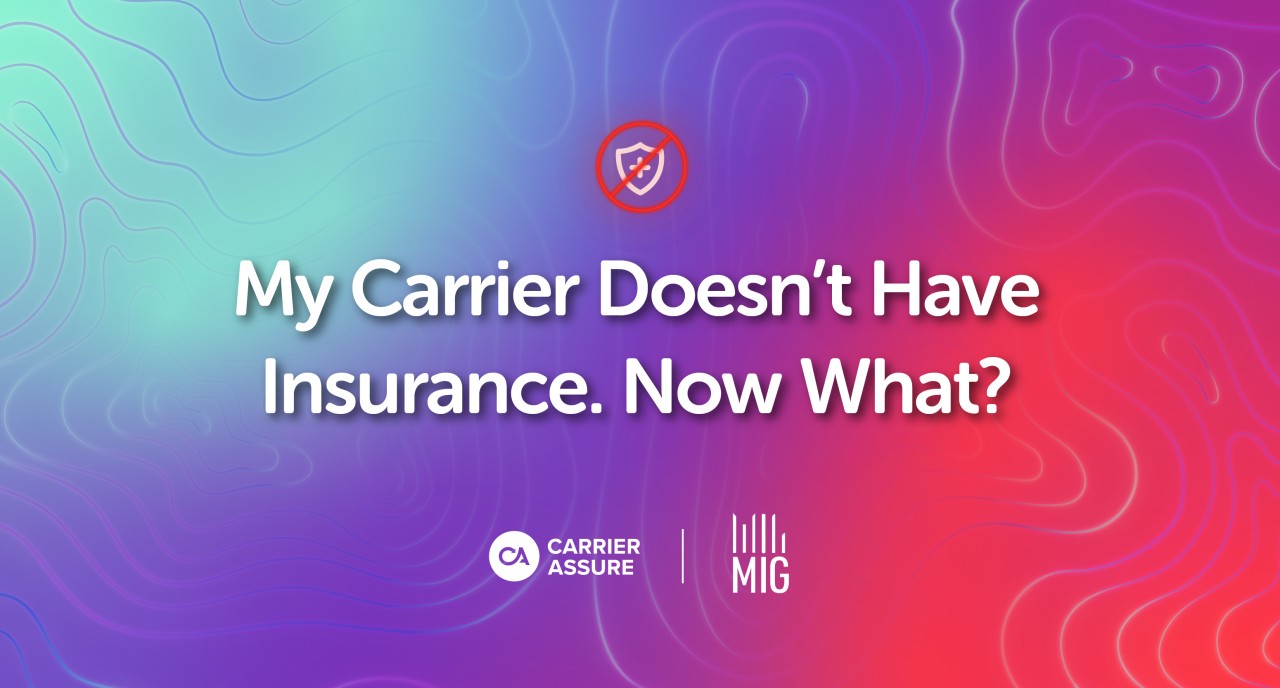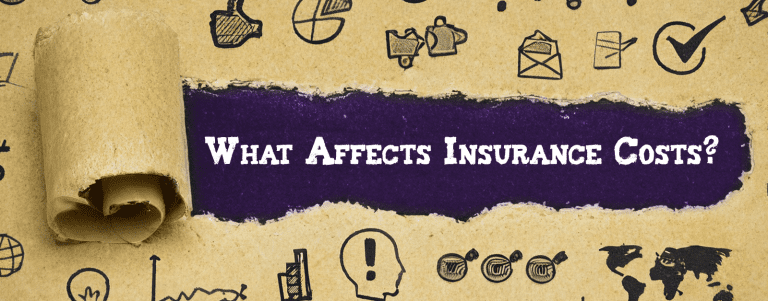Co-author: Carrier Assure Inc.
My Carrier Doesn't Have Insurance. Now What?
One of the most stressful situations when transporting freight is handling a cargo claim, especially when the insurance company of the carrier you hired does not cover that specific incident. So, what to do if you have a cargo claim and the carrier’s insurer declines the claim?
The Broker Perspective
Primarily, it is important to note that brokers need to know what they are shipping before selecting a carrier. Brokers need to be aware of the commodities they are shipping to ensure they choose a carrier with the proper coverage, especially when they are transporting food and beverages, produce, alcohol, mail, or household goods.
They should confirm with the trucking company that the goods being hauled are not an excluded commodity on insurance coverage.
Now, to answer the question, let’s look at an example. Let’s say the incident occurred with an FTL shipment of nuts, which is very expensive, and the nuts are damaged. What should you do?
1. Mitigate the damage. Make sure to take pictures of the damage, ask the driver, or hire someone to get out there and take the pictures. These are very useful since they will become evidence of what actually happened.
2. Ask the customer if the cargo is salvageable. Communicate with the customer to see what could be salvageable to reduce the damage.
3. Put payable on hold. Pause the payment process until the entire situation is under control.
4. Check the contract with the customer. Check to see if your insurance covers the claim.
5. Look into suing the carrier. In most cases, this does not work since the carrier is just starting, and they do not have the money to go through a lawsuit.
6. Negotiate with the customer. If they are worth it, negotiate with your customers depending on the amount of freight you ship with them and arrange a mutually beneficial agreement.
7. What if there’s no contract? If there’s no contract, you may argue that you’re just a broker. Hence, you only arrange for transportation and do not expressly guarantee the safe transportation of the freight. You hired the carrier, gave them the information, and did what you had to do during the logistics portions of the process.
8. Be careful with how much the goods cost. Sometimes shippers will try to hand you an invoice with retail value instead of commercial value; therefore, it will be much greater. You need to know how much the goods were bought for, not how much the shipper would sell them for.
9. Hire an insurance broker that understands the transportation and logistics industry. There are many insurance brokers, but not all of them are knowledgeable, specifically in the transportation and logistics industry. Make sure you find one that knows how the industry works.
10. Vet carriers. Even though you need capacity fast, it’s essential to vet your carriers beforehand to avoid these kinds of issues.
What is Contingent Cargo Insurance?
Contingent cargo insurance covers complex claims. It provides coverage when general cargo insurance is not covering or meeting its function. It’s essential to ask for an entire list of exclusions for any insurance you take.
Shipper's Interest Insurance
The shipper’s interest insurance is transactional insurance you can buy for each shipment. Some people set it up depending on the value of the freight. If it’s more than 100,000 dollars, for example, you add the additional cost of the shipper’s interest insurance to the total value of the shipment and ensure safe and reliable transportation.
There are other types of insurance. For instance, you can buy specific insurance for each customer, depending on if it’s worth it, for example, if you have a dedicated lane.
Taking the time to review these different insurances will help your business. Larger customers will want higher insurance, so they know you are a reliable company.
Shipper Perspective
When you have a cargo claim and the carrier will not pay, these are some of your options:
- • Pause the payables.
- • Negotiate with the broker and with the carrier if possible.
- • Make sure you speak with their insurance company.
- • Vet carriers and brokers.
- • The more communication you have, the more you’ll be able to avoid these types of situations.
- • Do not gain capacity by lowering your standards.
Pro tip.
Consider the scheduled VIN policy. If the truck carrier does not have a VIN number, then it’s best if you don’t use that carrier for more expensive shipments.
If the carrier doesn’t have insurance, the options are limited, but the best way to pivot is to prevent these things from happening. For instance, try to hire a carrier with authority for over a year and try to vet their insurance thoroughly by asking about their limitations beforehand. Take these tips into consideration, and avoid handling claims and carriers without the proper insurance.





